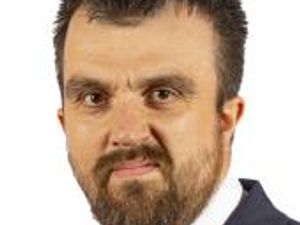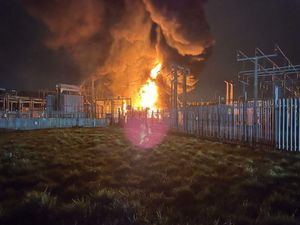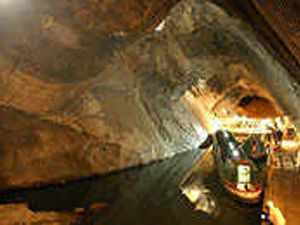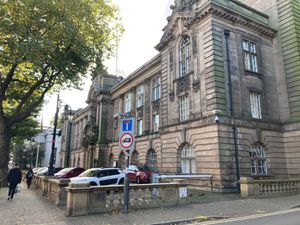Will shake-up get our trains back on track?
First Saturday night of the German Christmas market in Birmingham, and the patience among rail passengers heading back to Shropshire is wearing thin.
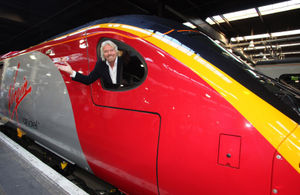
First a guard turns about 100 passengers away from the 22.05 London Midland service to Wolverhampton, Shrewsbury and Telford, saying there is no more room.
Then, after waiting half an hour for the next train to arrive, they are directed to another platform, where they attempt to board a grubby, hopelessly overcrowded Arriva service.
Finally, after about 15 minutes pushing and shoving, passengers for Wolverhampton are ordered to disembark and wait for the last train of the evening, a Virgin service which is due to leave at 23.41 – but actually departs at a quarter past midnight. Some two hours after many passengers arrived at the station.
Rail services throughout the West Midlands are set for a big shake-up over the next few years, and many will say the changes do not come a moment too soon.
Yesterday, West Midlands Trains replaced London Midland as the franchise holder for many commuter and express services in the region for the next nine years. But that is just the start of a series of changes over the next two years, which the Government hopes will improve customer satisfaction in our rail services.
Later this month, the Welsh Government will announce a shortlist of bidders in the running to take over the services currently run by German state railway DeutscheBahn (DB) under the Arriva Train Wales brand. Last month the company announced it would not be seeking to extend its franchise, which comes to an end next year.
DB also operates two other franchises in the West Midlands: the Cross Country express service, which is due to go out to tender next year, and the Chiltern Railways service, mainly in the south of the region, which runs until 2021.
The biggest shake-up of all, though, comes in 2019, when the Virgin Trains inter-city services on the West Coast main line are replaced by a new multinational franchise that will also run the controversial HS2 service.
Virgin Trains, a partnership between Sir Richard Branson's Virgin group and Scottish public transport company Stagecoach, has been running inter-city services on the West Coast mainline for more than 20 years, serving Birmingham New Street, Sandwell & Dudley, Wolverhampton, Stafford, Telford, Wellington and Shrewsbury. But the terms of the new franchise mean that the next operator must include a company with previous experience of running "high-speed" rail services as well, meaning that an overseas operator from mainland Europe or Asia has to be part of the tendering process.
For all the anecdotal evidence about crowded, dirty, unreliable and expensive trains, customer satisfaction figures among passengers in the West Midlands and mid-Wales are actually reasonably good. Chiltern Railways and Virgin Trains came top in July's Passenger Focus league tables, both achieving 92 per cent ratings. Cross Country scored 88 per cent, followed by London Midland on 84 per cent and Arriva Trains Wales on 83 per cent.
However, there are some who will not mourn the passing of either Arriva Train Wales or London Midland.
Shrewsbury and Atcham MP Daniel Kawczynski is particularly withering in his criticism of Arriva.
“Anything will be better than the service that Arriva Trains Wales is currently offering,” he says.
“Sometimes, when I have been on the train it has been like sardines in a tin. I was on a train where a lady collapsed because of the conditions and had to be taken off for treatment."
On the other hand, it is only fair to point out that to some degree Arriva's hands have been tied behind its back by the lack of electrification on great stretches of its routes. This has left the company with little choice but to use an all-diesel fleet, something that will similarly afflict any of its possible successors.
Arriva's decision to drop out of the bidding process leaves three bidders vying to take on the service: KeolisAmey – a consortium between British infrastructure company Amey and Keolis, which is 70 per cent owned by French state railway SNCF – MTR, and the Abellio Group, which also owns a majority shareholding in the Midlands Trains franchise that will replace London Midland next month.
In private, many of the train operators may also argue that a lot of the problems with reliability and punctuality are outside their control. Track, signalling, maintenance schedules and associated infrastructure works are still managed by Network Rail, which was renationalised in 2002.
Transport Secretary Chris Grayling is pinning his hopes on HS2 ending the sort of problems that visitors to the German Christmas market experienced last month. He says having a single operator for both HS2 and West Coast mainline is crucial: he wants the extra capacity created by HS2 to free up more space on the existing line, offering better services for people travelling shorter distances.
He says: "This will create more seats for passengers, improve connections between our great cities, free up space on existing rail lines and generate jobs and economic growth throughout the country.
"I look forward to seeing the bidders’ innovative ideas to put passengers at the heart of the railway."
At the moment, three bids have been shortlisted for the West Coast/HS2 franchise, due to be awarded next year: Virgin and Stagecoach have teamed up with French state operator SNCF, with Stagecoach taking a 50 per cent share SNCF 30 per cent and Virgin 20 per cent. It seems probable that, if successful, the Virgin brand will be retained, at least for services on the existing lines.
There is no doubt SNCF has plenty of experience of operating in Britain, although this has not always been an entirely happy affair. The company owns a stake in Govia, which not only runs the soon-to-end London Midland franchise, but also the infamous Southern Railway. Over the past 10 years, Southern has been plagued by accusations of poor punctuality and overcrowding, as well as a long-running strike about who takes responsibility for closing train doors. SNCF also unsuccessfully bid against Virgin to run the main West Coast franchise in 2012.
Of the rivals to the Virgin-Stagecoach-SNCF, the most recognisable is one headed by the First Group. Many will remember First Group won beat Virgin Trains in the 2012 tendering process, only for the contract to be withdrawn over faults in the selection process. First Group has joined forces with the Italian state operator Trenitalia, with the Italian operator taking a 30 per cent stake.
The real surprise, though, is the third bidder. MTR West Coast Partnership, an all-Chinese bid. It is made up of two main companies, Hong Kong's MTR Corporation, and the Guangshen Railway Company, which runs a 300-mile route from Shenzhen to Pingshi on the Chinese mainland. To bring some European experience to the table, it has brought in consultants from Deloitte MCS, and also has Panasonic Systems Europe, Swedish travel software company Snowfall and ticket retailer Trainline on board.
Jeremy Long, chief executive of European Business at MTR, says the company looks forward to putting together a world-class proposal that delivers the best possible service for passengers.
His rival, Trenitalia chief executive Barbara Morgante says the FirItalian state railway will "bring FS Italiane Group’s industry-leading high speed rail knowledge to the West Coast Partnership."
"We believe that the UK rail market provides an excellent opportunity for the group to leverage its experience accrued in the highly competitive Italian market," she adds.
Speaking for the Virgin-Stagecoach-SNCF bid, Stagecoach chief Martin Griffiths says being shortlisted is recognition of "the extensive expertise and strong track-record of Stagecoach and our partners has been recognised’.
"We look forward to working with local stakeholders on shaping our plans to improve services for customers and deliver significant value to the taxpayer to reinvest in public services," he adds.
Virgin is very proud of the increase in passenger numbers on the West Coast line over the past two decades, rising from 15 million in 1997 to 37 million this year. At the launch of the first Virgin service, Sir Richard described his target of 30 million passengers a year as "mission impossible."
Of course, HS2 alone is nothing if not controversial, and only time will tell whether any of the new franchisees will delivers Mr Grayling's vision of faster, more comfortable and more reliable services.

